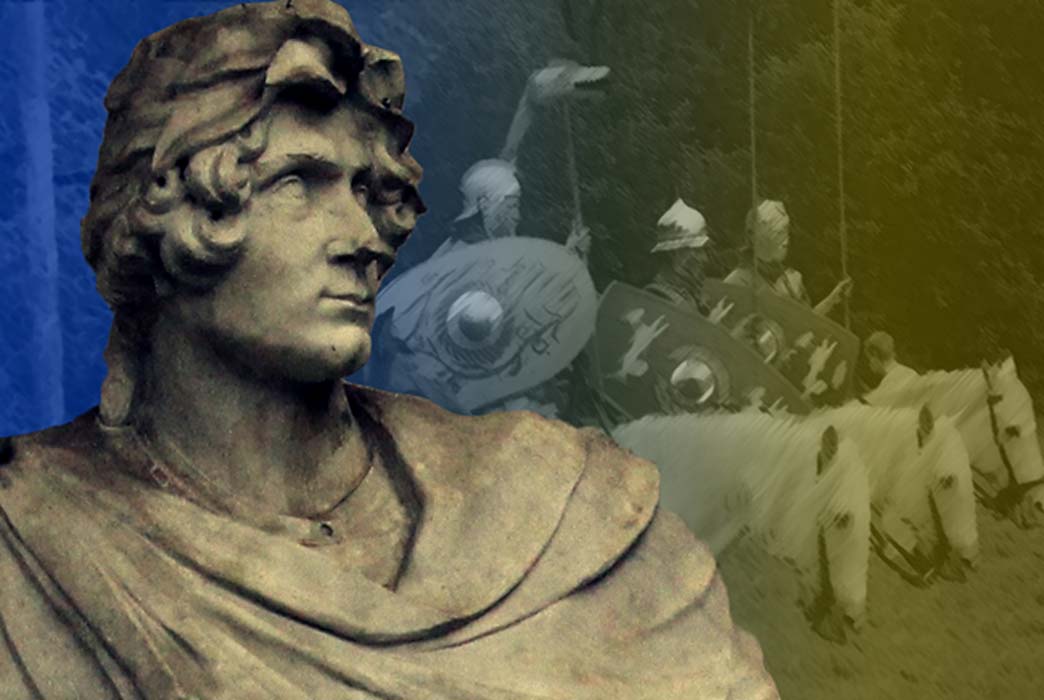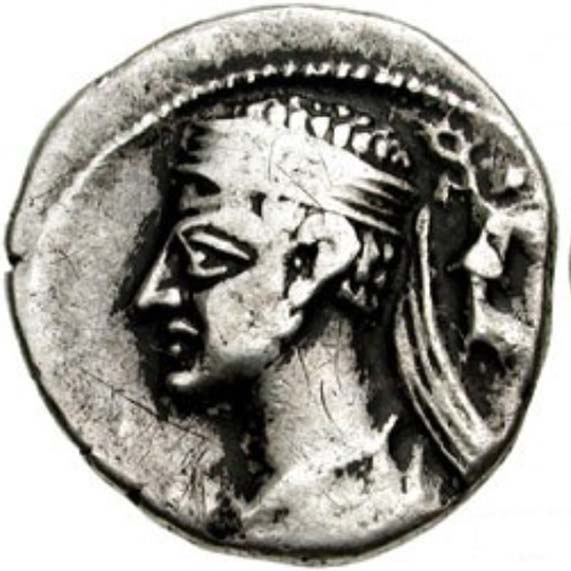
Rome’s Forgotten General: Ventidius Takes Enemy Heads and Enemy Gold – Part II
With the Amanus Pass secured, Roman general Publius Ventidius Bassus, on the mission given by Antony to retake Asia-Minor, pushed south into Syria. Prince Pacorus of Parthia of was done fighting, at least for now, and abandoned the province to the Romans in late 39 BCE. With the Parthians out of the way, Ventidius led his forces to the province of Judea.
Fleecing Kings
Ventidius’ mission in Judea was both simple and lucrative; it was to rid the province of any remaining Parthians and the anti-Roman King Antigonus, and to restore Herod to the throne. Ventidius did neither. Instead, he bypassed Herod's royal family (who were besieged by the troops of Antigonus on the top of Masada), and went straight for Jerusalem, were he camped outside the walls.
Ventidius was playing psychological warfare with Antigonus by making him think that he was going to take Jerusalem. However, it was a ruse. Ventidius decided to use fear and trickery, promising not to attack Jerusalem unless he received vast amounts of wealth from the king. Antigonus capitulated.
Make no mistake, Ventidius was still going to support Herod and place him on the throne, but while Herod was still far away, and his brother was besieged, Ventidius felt he might as well make some money while they waited. After Ventidius’ coffers were filled, he took the bulk of his forces and headed back for Syria, leaving Silo in charge to deal with the Jewish problem. However, Antigonus came up with his own ploy; he would bribe Silo multiple times. Antigonus’ reasoning was to buy time and hope that the Parthians would come to his assistance while he kept the Romans at bay. But this would not happen.
Info and Disinfo
As Ventidius returned to Syria, he sent the bulk of his forces beyond the Taurus Mountains, to Cappadocia, for winter quarters. It was during this time that Pacorus was planning another invasion of Syria, and began to mobilize a substantial number of cavalry from the nearby provinces. Word of Pacorus’ intentions soon spread, reaching the ears of loyal Roman informants, who then relayed the information to Ventidius. Not only was this news crucial for preparation, it also informed Ventidius that a Syrian noble by the name of Channaeus (also called Pharnaeus) who pretended to be a Roman ally was in fact a spy and Parthian loyalist.
- Alexander the Great Destroyer? The Sacking of Persepolis and The Business of War – Part I
- Exploring the Origins of the Vandals, The Great Destroyers
- Mighty Cartimandua, Queen of the Brigantes Tribe and Friend to Rome
Ventidius likely invited Channaeus over for dinner, and during their meeting Ventidius made it clear that he feared the Parthians would abandon their normal route “where they customarily crossed the Euphrates near the city of Zeugma.” Ventidius acted concerned over the issue, making it clear that if Pacorus were to invade Syria much further to the south, he would have the advantage over the Romans for it “was a plain, and convenient for the enemy.” After the meeting was finished, Channaeus returned to his home and quickly sent messengers to inform Pacorus of Ventidius fears.

Coin of Pacorus I of Parthia. (Public Domain)
Come early spring 38 BCE, Pacorus, unwilling to let go of Syria, led his forces south along the Euphrates River based on Ventidius’ supposed fears of engaging the enemy on a plain. Once they came to the point of crossing, Pacorus realized that the construction of a bridge was needed, due to the banks being widely separated. It took many men and much material, and the construction of the bridge was finally complete after forty days. This is exactly what Ventidius wanted. Ventidius’ disinformation had bought much-needed time to allow his legions to assemble.




